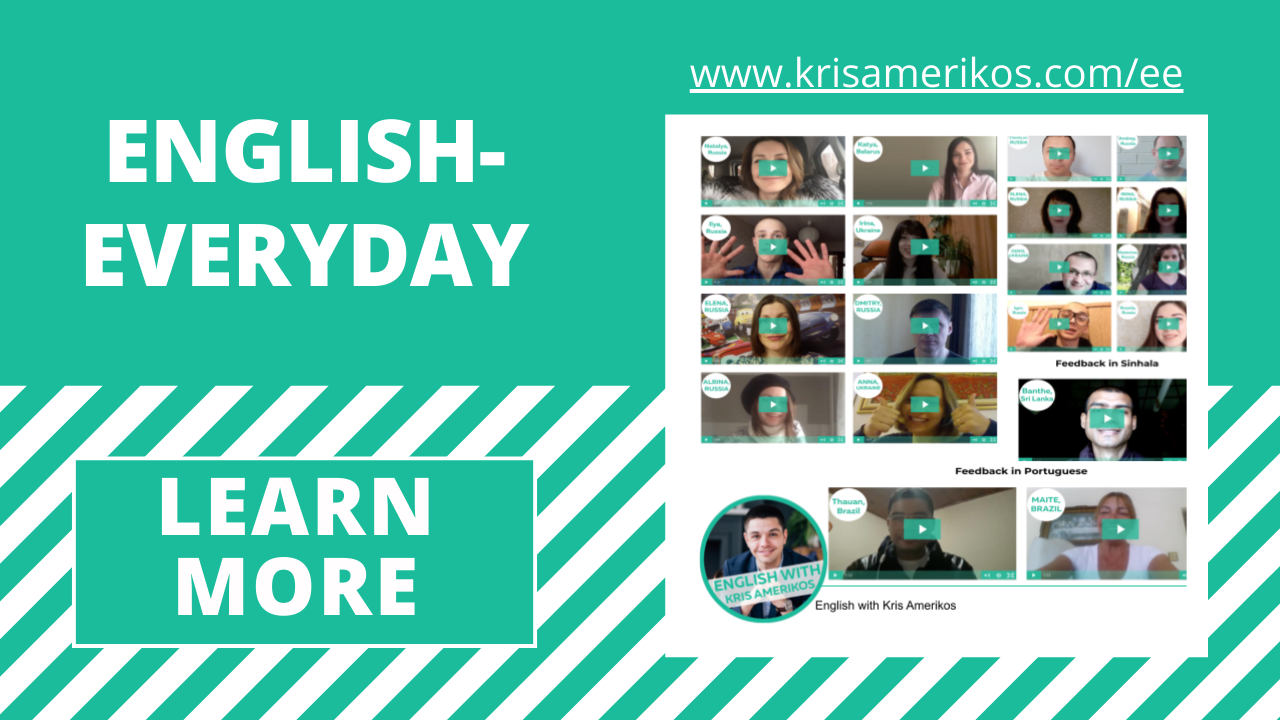How to Start Learning English - Best Tips With Detailed Explanations

Learning English can be incredibly overwhelming. There’s a lot to learn in a restricted amount of time. Unless you have the time to practice English for hours every day, you must start learning English in the right way to avoid wasting time. There are ways to drastically improve your English skills in 30 days, but the best way to learn English is to lay a solid foundation from the beginning. In this blog, we will show you the best way to start learning English to learn English fast.
Why You Should Learn The English Language
English has become the international language because it is the language of business and travel around the world. English students learn English for a multitude of different reasons ranging from getting a job to moving up the corporate ladder or communicating when travelling. Each person’s reason for learning the English language is unique and yours will be too.
You should learn the English language because English is guaranteed to open doors for you in your life. Over and above the business and travel benefits of knowing English, learning English will also allow you unlimited access to movies, books and academic articles. You won’t need to wait for the translation in your mother tongue and you won’t need to rely on subtitles to watch movies anymore once you know English.
And, finally, learning English (or any language for that matter) is a great way to challenge your brain and to learn about new customs and traditions. Learning a new language improves brain function as people who can speak more than two languages are proven to have healthier minds later on in life. Additionally, it’s impossible to learn a language without learning the customs of the culture. You should learn the English language to better understand English culture. Learning languages strengthens and opens our minds simultaneously. There are few reasons why you shouldn’t learn the English language.

What is The Most Difficult Part of Learning English?
Most English learners will agree that the most difficult part about learning English is learning English vocabulary.
Phrasal Verbs
Phrasal verbs, in particular, are incredibly challenging for learners of the English language. Phrasal verbs are any verb that consists of two or more words. While some of the meanings are literal like ‘pick up’ means to lift something or someone into the air with your hands, there are idiomatic meanings too. ‘Pick up’ can also mean ‘to increase or improve’ or ‘to answer the phone.’ The context of its use makes the meaning clear - but it doesn’t make things easy for English language learners.
Idioms, Sayings, And Phrases
Native English speakers often use idioms, sayings and phrases when they communicate. What makes things even more difficult for non-native English speakers is the fact that native English speakers don’t always finish the idiom. For example, a native English speaker might say ‘it never rains…’ knowing that another English speaker will understand they mean ‘it never rains, but it pours.’ The idiom ‘it never rains, but it pours,’ means a series of bad things or unfortunate events always happen at once. The idioms themselves can be difficult to understand and not finishing the idioms makes it almost impossible for non-native English speakers to understand them.

Grammar Rules and Sentence Structures
Vocabulary is not the only challenging thing about learning English. English learners also have a lot of grammar rules to learn. It’s important to constantly expand your understanding of English grammar to improve your English speaking skills. It is possible to communicate in English even if you’re grammatically incorrect - so don’t let grammar hold you back from communicating. However, grammar mistakes can lead to a language barrier. Language barriers mean that the listener needs to work harder to understand what you’re saying. Therefore it’s a good idea to perfect your English grammar skills to communicate efficiently and effectively.
Exceptions To The Rules
Once you learn the rules in English, you will need to learn how and when to break the rules. It can be challenging to learn rules in English to then be told that the rule only applies most of the time and not all of the time.
Prepositions and Collocations
Learning which prepositions match which nouns, adjectives or verbs can be very challenging. These words go together for no other reason than they go together. This means that there are no rules to learn and guide you through prepositions. The same goes for collocations. Some adjectives are used to describe nouns like ‘heavy rain’ and ‘strong wind’ and mixing them up would be incorrect. Therefore, it’s better to learn words in chunks and phrases to know how to use them properly.

Where to Start When Learning the English Language
There is a lot to learn when learning English. Learning English will take a long time and it will require a lot of dedication - but it isn’t impossible. The most important thing you can do when learning the English language is to accept that you will need to listen to the language a lot and you will make countless mistakes.
Visit An English-Speaking Country
This is the best way to learn English correctly from the beginning. It’s never too soon to immerse yourself in a language to learn it. This route is certainly a luxury, but if you have the opportunity to study or work in an English-speaking country then this is the best way to start learning English.
You will feel very confused and overwhelmed at the beginning but you’ll surprise yourself with how quickly you start to understand English. If you can choose this route, remember to spend a lot of time listening and try to learn like a baby. Babies listen to the sounds of a language for many years before they perfect the language. They also babble to get their mouths around sounds before they can use them in words. If you start with listening and practicing the sounds of English before attempting to speak fluently you will start with a solid foundation. The more time spent at the beginning stages of learning sounds and sentence structures, the faster you will speak English fluently.

Surround Yourself With English
If you don’t have the privilege of spending time in an English-speaking country then make sure that you surround yourself with the English language daily. You can do this by watching English movies, listening to podcasts and labelling the items around your house in English. In the same way that you won’t understand everything in a native English-speaking country, don’t expect yourself to understand every movie, every word you read or every podcast you listen to. Our brains need to hear and see a language to learn it. English language learners usually start by learning rules, however, reading and listening to a language without formally studying all day also greatly improves language skills.
Record New Vocabulary
Don’t think that you will remember every word that you hear. If you hear or read a new word, phrasal verb, or idiom, write it down with its form (noun/adjective/adverb/etc), its definition (preferably in English) and a few example sentences to see how it is used.
Learn English Every Day
Whether it's one hour per day or five hours per day, regular practice is the best way to learn a new language. Find a way to fit learning English into your everyday schedule to learn it quickly.
Find A Native English Speaking Partner
A native English-speaking partner will help you correct your mistakes and teach you English the correct way from the beginning. If you learn from someone whose English level is not native-like then you will pick up their bad habits while developing your own. It’s never too soon to find a native English speaking partner.
Practice Difficult Sounds
Spend time getting your mouth around sounds in English that don’t exist in your mother-tongue language. If a sound exists in English but doesn’t exist in your mother-tongue language then you will replace the sound with the closest sound in your mother-tongue language. This can lead to miscommunication caused by mispronunciation. The best solution is to perfect these sounds at the beginning of your English learning journey.
Listen To English
English has a rhythm that relies on word stress and sentence stress. Listen to native speakers in movies and podcasts to learn the rhythm of English. Pause and repeat words and sentences to speak like a native English speaker. This will make it easier to understand native speakers and for native speakers to understand you.
What is English Everyday
English-Everyday is an English course with live lessons for English learners who want to improve their English with native speakers, professional teachers, and students from around the world.
You have live lessons where you can join every day. You can review all record lessons. There is a calendar of scheduled lessons so you can see when lessons are and at what time you can join.
In English Everyday program, you have support and also you have student chat where you can speak with other students from all around the world. You can look at our feedback page so that you can know from which countries our students are. Before you join our program, we strongly recommend you sign up for our free seminar with Kris Amerikos, where you can learn:
- What goals you need to have to get better results
- How to become fluent in English very quickly
- What you need to do to have perfect pronunciation
- The 3 biggest mistakes you need to avoid
- Which free resources will help you learn English
- The best resource to use to improve your speaking

Best Tips That Beginners Should Use When They Are Starting Learning English
Make Mistakes
If you’re not making mistakes then you’re not learning. The only way you can perfect your language skills is if you use the rules you learn. Many English learners don’t want to speak because they are afraid of making mistakes. Mistakes are unavoidable, so make as many as you can and learn from them.
Just Start
The timing will never be perfect - but you need to get the ball rolling. Start small with even half an hour of English every day. Once you have formed the habit, extend the time and learn English as many hours as possible per day.
Accept That It Will Be Difficult
It will take a long time to learn all of the rules and words of the English language. You will fail, you will run out of time some days and you will get frustrated along the way. It’s important to be kind to ourselves and to learn when to rest without quitting.






































